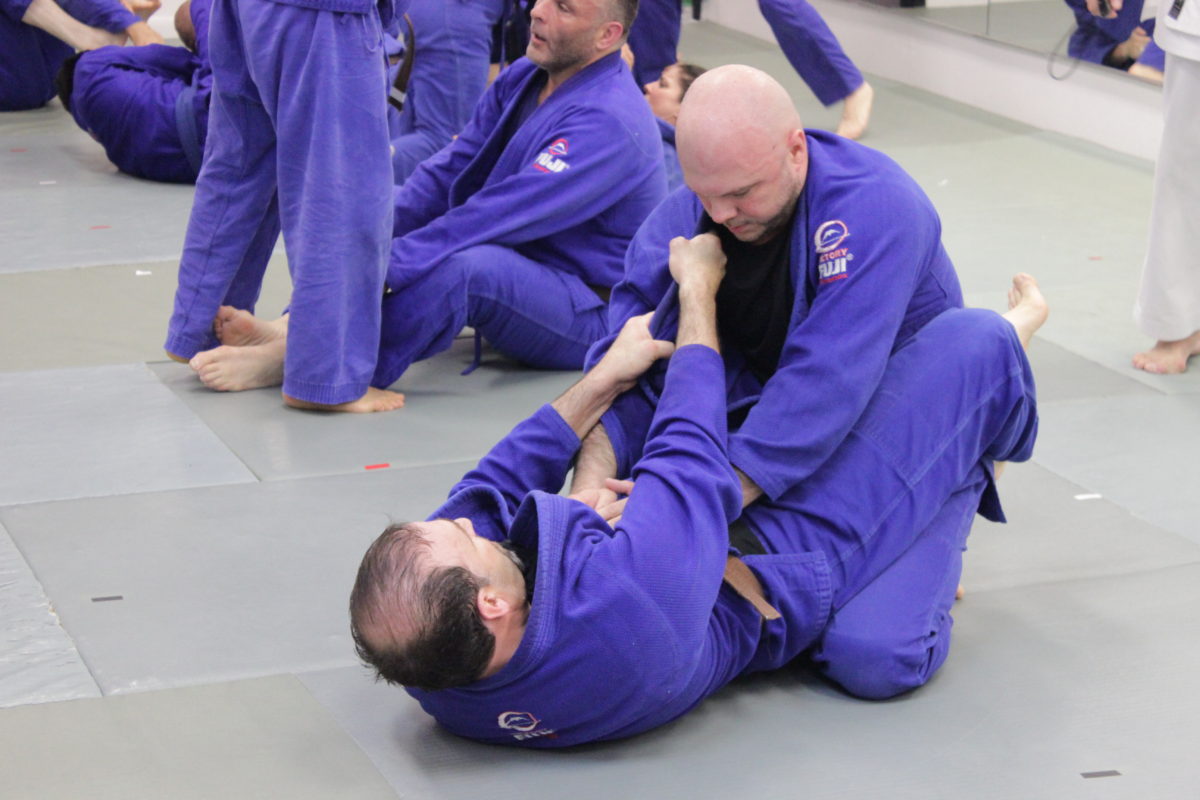
In the martial arts tradition, we look to one another for support. Part of the benefit of having more experienced students around us is so we can reflect on our own experience. We get a gauge of how we’re doing. But we’re not looking to measure ourselves solely in relation to where we are in sparring or randori, but how we are progressing as practitioners overall.
If we’re not holding one another to account, sometimes we can lose sight of what the standard is. Of course our instructors are there to do this as well, but as partners and peers we have to do this service to one another as well. When we set the bar high – not so high that it’s impossible to reach, but high enough so that others have to climb a little bit to reach us – then we inspire progress, regardless of ability or age or stage.
What’s rewarding is that this is a mutual responsibility. It furthers our connection and reliance with one another, deepening our link to our partners in the classroom and expanding our capacity to relate to others outside it. So it makes sense to keep the standard high: in practice, discipline, focus, concentration, manners, in non-quitting spirit. Doing that you safeguard your future as a partner, as a practitioner.
One caveat is that setting a high bar has to be accompanied by a measure of patience. Because if we are impatient with one another in enforcing our standards, then we find ourselves alienating others rather than engendering growth. In other words, we need more “drill” and less “sergeant”. I have to keep my standards high, but I have to make room for other people to climb up to reach them.
For senior students, the message is that you don’t have to climb down to the junior. Don’t lower your standards. Instead, be patient as they make their way up to you. Junior students need to work extra hard to bring the standard up because no one should want to be the person at the very bottom. Now one of us is always down there at the bottom – we call it being at the beginning. Often it’s the newest person, and in the martial arts context that’s not a bad place to be. There’s plenty of room to grow and to climb. But you have to do the work of the growing and the climbing.
You can be on the bottom rung but you can’t stay on the bottom rung. You can be the most junior person but you can’t stay the most junior person. You don’t want to end up as the person who’s been training for eight years, but instead of eight years of experience you have one year of experience repeated eight times.
So we link up in this way. We hold one another to account by keeping the standard high. Then everyone’s work is to climb. You can do this effectively over a long period of time. You have to have patience with yourself and others, knowing that the rest of the group has patience for you as you grow so long as you’re making progress.
Listen to the podcast here: The Martial Arts Mind Podcast
For more about our larger project of collaborative Jiu-Jitsu and martial arts training, please visit the Brooklyn Brazilian Jiu-Jitsu (Brooklyn BJJ) website here.